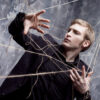
Photo by procsilas
“People often expect different results from doing the same actions” – Alcoholics Anonymous
When we think about addiction, the first image that crosses our mind is that of someone addicted to alcohol, tobacco, gambling or drugs. However, addiction includes any form of fixation, obsession or habitual indulgence in an activity. So much so that when addicted, we cannot resist this indulgence despite being aware of its injurious impact. While in some cases this dependence on a substance or an activity is apparently physical, in most situations it’s essentially a psychological one.
Addiction starts with our initially flirting with the substance or the activity, mainly to enhance our mood at that moment or seek some momentary pleasure. However, with frequent flirtation, this indulgence becomes a habit – one that we find difficult to live without. All the same, overtime, once we get addicted, engaging in this fixation merely serves to make us feel normal.
Many more of us are addicted than we know.
Addiction then includes any uncontrolled obsession that we have – for example, for food, sweets, watching television, work, shopping, buying latest gadgets, facebook, or loveless sex. It refers to any deeper emotional dependency that we develop to feel good. While some of these may be less harmful than the others, they all have a significant negative impact on us. Defined this way, I feel we all are perhaps guilty of multiple addictions. Furthermore, while many of us escape the more visible addictions, we do get caught up with our own set of inner demons. Our recurring stream of thoughts and feelings about stuff- routinely getting anxious about situations, our persistent desire to control outcomes and the volatility of our temperament that we find challenging to moderate- are all examples of a compulsive behavior.
To my mind, all these are addictive patterns we live with, but are ignorant of, for the most part. These instinctive responses get so ingrained in our state of being that we find it difficult to shake them off our personality – they, like for an addict, start to define our ‘normal’ behavior.
As an illustration, here are some quick examples and symptoms of such prevalent addictions.
Anxiety
You are prone to readily getting worried about the slightest deviation from the expected in your life. Everything from your child arriving home late from school or your spouse traveling overseas to your appraisal meeting with your boss or your next big presentation is a source of panic for you. There’s always a reason to be fearful about something, that you convince yourself about, that can or will go wrong.
Perfection
You obsess about every action, behavior and situation that appears less than perfect for you; the mismatch of reality and your expectations bothers you no end; you suffer from the phrase, as one poet put it, “If I’m 98% perfect on anything I do, it’s the 2% I messed up I’ll remember when I’m through.”
You believe that your actions alone impact your destiny and hence want to control the outcome of your efforts. You take yourself too seriously and are very uncomfortable accepting failure. You are naturally drawn to controlling others’ behavior too- be it your spouse, children or colleagues- and are easily angered by their lack of adherence to your expectations.
External approval
Your sense of identity is derived entirely from your perception of how others perceive you. You are very sensitive to others’ comments and easily get upset by the slightest criticism. You are willing to sacrifice your interests and happiness to receive their approval; you even rationalize it within yourself as a reflection of your being a very generous and caring person.
Action
You are a restless soul. Action beckons you relentlessly and being still even for a few moments is frustrating for you. You are constantly engaged in something or are making plans of one. Time is always finite for you and the underlying belief you work with is that ‘not doing something’ is a waste of time.
Power
You crave for powerful roles and are possessed by a strong desire to appear important and prevail upon others. You believe that position and power in the socio-economic context alone reflect your success in life. Those with limited visible status are losers in your eyes.
Criticism
You cannot but help constantly criticize something – your circumstances, your neighbors, your family, the Government and so on. You constantly judge yourself and others and are quick to notice people’s limitations rather than their positives. The world for you is always getting worse and there’s routinely someone to blame for it.
Self-improvement
You are forever striving to get better. You love self-help books and videos and any time spent away from devoting yourself towards conscious improvement is a waste of time for you. Setbacks are a particular personal challenge for you as you are quick to blame yourself for your actions and circumstances.
And this list goes on…
The impact
These and other such compulsive behaviors get chiseled into our psyche and impact our state of well-being at multiple levels. These distorted mental models create perceptions for us that are clearly removed from reality. As a result, we often find a gap between what we want and what we get, leading to unending frustration, emotional angst and trauma.
Our recurring inappropriate behavior undoubtedly has a negatively influence on how we interact with others and our relationships. Invariably, it impacts our physical health as well. Extreme cases of obsessive thoughts can even lead to paranoia, depression and other mental health issues.
What’s really happening in all these situations? We are so conditioned to these thoughts and beliefs that we don’t even realize how addicted we are to these patterns. We are instinctively drawn to these thoughts or behaviors and find it hard to stop ourselves. Further, there’s somewhere the belief that once we indulge in these thoughts or actions, things will go our way and we will be happier and peaceful.
The cause
However, the thought arises in our mind, we cannot take our minds off it, it grows uncontrolled and is eventually satisfied only by our succumbing to it’s desires. We impulsively get angry, eat too much, buy possessions and want to manipulate our circumstances to get ahead.
Underlying all these obsessive thoughts and behaviors is our sense of incompleteness. We see ourselves lacking in some way or another and are constantly striving to become complete by indulging in these behaviors. We convince ourselves that this way, we would be better loved or be happier or have better control of the outcomes of our actions. All false hopes!
Dealing with inner addictions
The only way to break this stalemate is by learning to be present in the moment. When we are present, we can consciously become aware of these excessive thoughts as soon as they arise and deal with them effectively. In the very moment, when the thought is born, if we are present with ourselves, we are in a position to acknowledge it and consciously choose to put it aside. We neither need to suppress them nor let them fester. We simply recognize that we have the thought and without judging it, in any way, let it go.
You can then pause before rushing to check your e-mails, before considering to distort the reality to suit your needs, before starting to be hard on yourself, before judging others, before acceding to every demand made on you while ignoring your own needs, and before criticizing someone.
The crucial steps of pausing and reflecting, while being present, open new possibilities in every moment. Every situation that warrants control also offers the possibility of acceptance; alongside blame, there’s the possibility of compassion; instead of criticism, there’s appreciation; instead of perfection, there’s wholesomeness; instead of looking outside for approval, there’s inner strength and self-belief; and instead of constant action, there’s the joy of simply being.
Needless to add, like with alcoholism or drug addition, rehabilitating ourselves from these inner demons takes a long time. Also, withdrawal symptoms and relapses are only normal. But with patiently committing to the path of living in the present, we can get there. As St. Francis de Sales said about undertaking such a journey, “What we need is a cup of understanding, a barrel of love, and an ocean of patience.”
Related searched words:
Types of addiction /Cause and effect of addiction /Impact of addiction











 Attachment, Suffering, Ignorance and Personal Mastery
Attachment, Suffering, Ignorance and Personal Mastery Do We Really Have Free Will?
Do We Really Have Free Will? Can’t Go Outside? Try Going Inside
Can’t Go Outside? Try Going Inside Altering Your Karmic Cycle
Altering Your Karmic Cycle
Very interesting read, showing new perspective and need for earnest effort to change oneself. Request that you elaborate on more such ‘addictions’ /’habits’ that one must refrain from.Thanks for all the articles – fresh perspectives written with good insights and without sounding preachy. thanks.